Parliament has had an unusual fortnight.
Two weeks ago MPs interrupted their usual business to elect a new leader for New Zealand’s legislature, with Adrian Rurawhe chosen as Speaker of the House of Representatives, replacing the retiring Trevor Mallard.
One week on and New Zealand lost another constitutional pillar: the Sovereign.
Oscar Wilde’s Lady Bracknell would argue we are beyond misfortune and into carelessness.
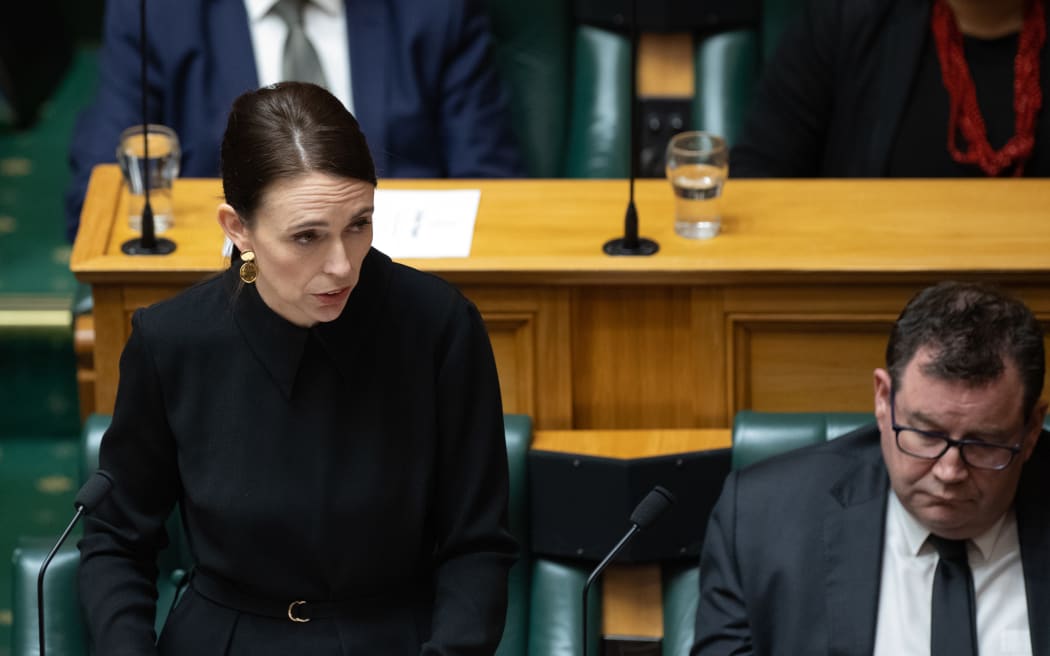
Prime Minister Jacinda Ardern speaks during a response to the Governor-General's statement on the passing of Queen Elizabeth II, 13 September 2022. Photo: Johnny Blades / VNP
The death of an ‘MP’
You might think the loss of a sovereign would not impact Parliament but you would be wrong.
Strictly speaking, when the Queen died Parliament lost a member. Or depending on how you count we lost half of Parliament. You might even say the Sovereign is an unelected MP.
We often refer to New Zealand’s House of Representatives as Parliament. It’s easier to say but it’s also not quite true.
The MPs that meet in Wellington are not Parliament, they are the House of Representatives.
Parliament is what we call the combination of the House of Representatives AND the Sovereign. Its members are now 120 MPs and one King.
That is why bills passed by the House are signed by the Governor General (for the Sovereign).
The MPs passing a bill does not make it law because it has only been passed by the House of Representatives. Bills become law once they have been affirmed by Parliament (the combination that includes the Sovereign).
Note that ‘The Crown’ is different again from any of those entities, but that’s a very complicated topic for another day.
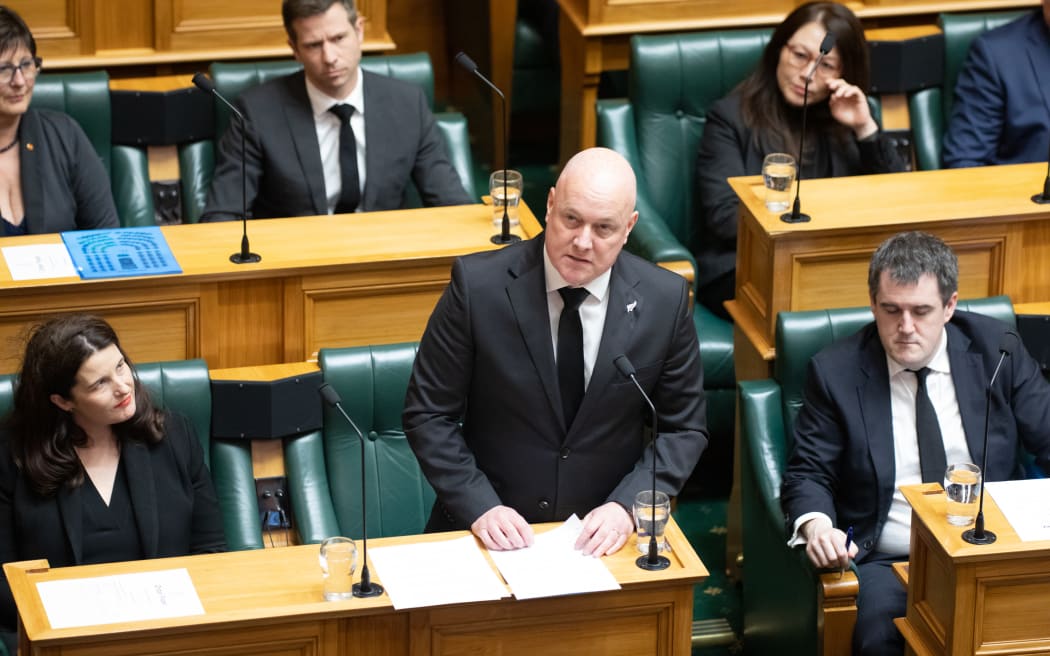
National Party leader Chris Luxon speaks during the response to the Governor-General's statement on the passing of Queen Elizabeth II, 13 September 2022. Photo: Johnny Blades / VNP
An extension on the Homework
With the demise of half of the combo that is Parliament, MPs had their schedule thrown into the air again. The House, when it met on Tuesday did just two things - and then they adjourned for the week out of respect.
Firstly there was a round of speeches regarding the ‘ascension’ of Queen Elizabeth and the accession of King Charles, and then MPs had a quick vote to grant themselves an extension for the final approval of this year’s budget.
Parliament’s rules include a deadline for approving the budget and a debate was on the agenda this week to meet that deadline. Suddenly that wasn’t going to happen.
But MPs set their own rules and so can also grant themselves a short extension on completing the homework. The Queen ate my homework is not a typical excuse.
The final budget debate will now occur next week instead (so long as the run of historical occurrences doesn’t continue).
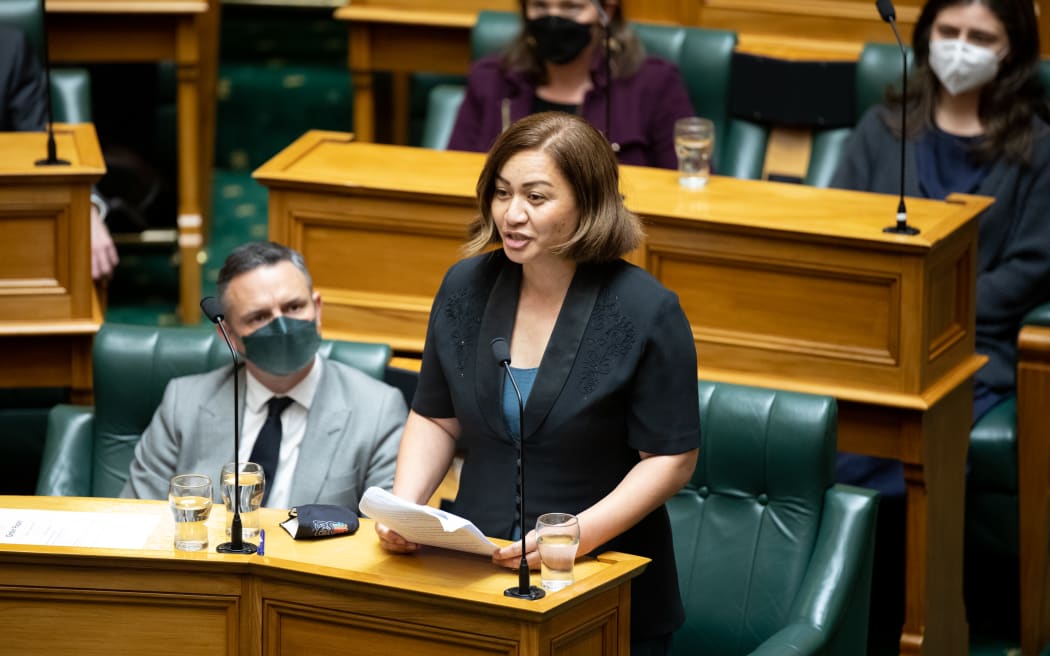
Green Party Co-leader Marama Davidson speaks during the response to the Governor-General's statement on the passing of Queen Elizabeth II, 13 September 2022. Photo: Johnny Blades / VNP
Consolation and congratulations
The very first thing the House did on Tuesday was hear a message from the Governor General. (Communications from the sovereign are always described as ‘Messages’, communications to them are called an ‘Address’, always with the adjective ‘respectful’).
The Speaker Adrian Rurawhe is the conduit between the Governor General and the House. The name Speaker describes that role (not the endless listening they do in the House).
Note too that that relationship is different from the one between the Executive and the Governor General (which takes us back to the Crown versus the Sovereign).
It may seem charmingly olde-worlde to have the Parliament informed of the death of the Queen five days later by a note from Government House. It brings to mind such messages arriving via sailing ships.
It certainly wasn’t news to anyone in the House. Many of the MPs had been present on Sunday when a formal declaration of the new king had occurred on Parliament’s front steps.
Bringing the news formally like this is more about ceremonial courtesy than informational. It also is a prompt to the House to reply with its condolences and congratulations (a weird mix for any message).
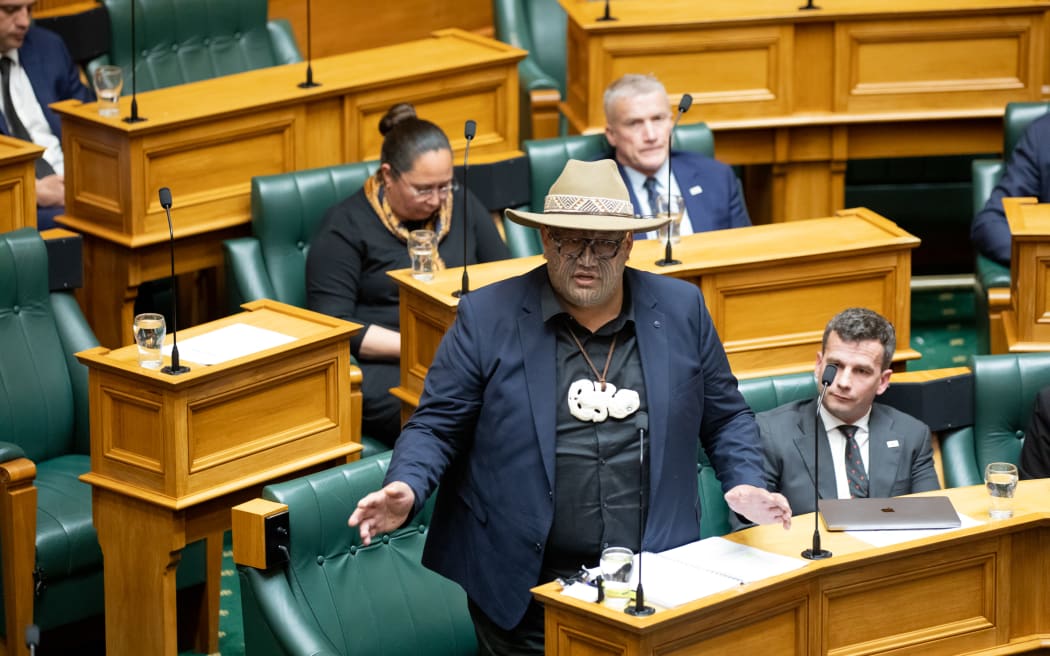
Māori Party Co-leader Rawiri Waititi speaks during the response to the Governor-General's statement on the passing of Queen Elizabeth II, 13 September 2022. Photo: Johnny Blades / VNP
‘What should we write in the card?’
The speeches that followed the message from the Governor General were (theoretically at least), a discussion of the House’s response to that message. The speeches began with the Prime Minister suggesting a form of words.
“To the King's Most Excellent Majesty,
Most Gracious Sovereign—we, the members of the House of Representatives of New Zealand, wish to offer Your Majesty our heartfelt sympathy on the loss of your beloved mother, our Sovereign Queen of New Zealand Elizabeth II, who was loved for her grace, calmness, dedication, and public service.
Her affection for New Zealand and its people was clear, and it was an affection that was shared. You have our deepest sympathies for her loss but also our gratitude for her extraordinary life of service.
We respectfully offer Your Majesty our congratulations upon your accession to the Throne, and express a wish that your reign may be marked by peace, prosperity, unity, and joy.”
But despite the Prime Minister suggesting a wording, none of the speeches that followed offered an opinion on whether that would sound good written in the proverbial card. The various speakers and party leaders had their own agendas and audiences to focus on.
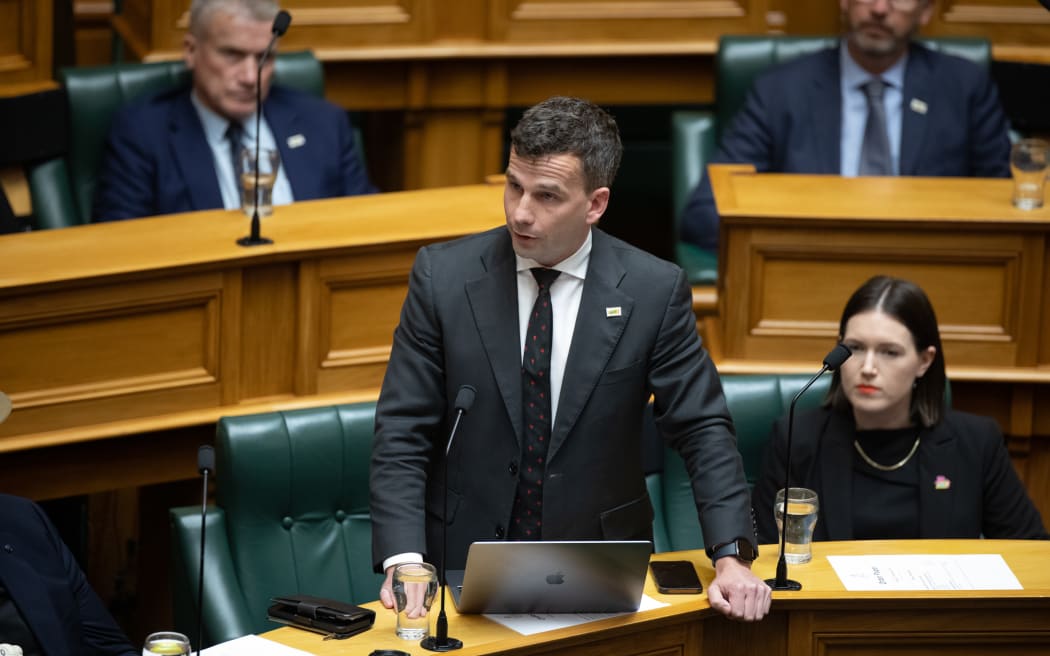
Act Party Co-leader David Seymour speaks during the response to the Governor-General's statement on the passing of Queen Elizabeth II, 13 September 2022. Photo: Johnny Blades / VNP
The various messages
In this kind of debate a prime minister has to speak for more than just her own party. They are speaking for the wider populace. It’s also a nice change to look ‘presidential’.
Leaders of opposition tend to take a similar approach, bringing a tone that seeks to portray a worthy leader in waiting.
The minor parties and the more junior members of the major parties get to speak without the strictures and expectations of office. Basically, they get to be a bit more forthright.
The speakers were all respectful, and as you would expect so near to the death of anyone, generous in their descriptions, but they could also speak a little more freely.
Green co-leader Marama Davidson complained that Parliament was adjourning for a whole week when there was so much that needed doing. She noted that “important legislation will be delayed, including the Maniapoto Claims Settlement Bill, the Accident Compensation (Maternal Birth Injury and Other Matters) Amendment Bill, and the Electoral (Strengthening Democracy) Amendment Bill.”
Te Paati Maori co-leader Rawiri Waititi found an impressively respectful way to describe the sovereign as an enemy without quite going there. Shakespeare’s Mark Antony would have been proud.
“Our tikanga is clear that we must give time for whānau to grieve their losses, and even enemies can show respect. …there is a time and a place to raise your patu; there is a time and place to lower it.”
ACT party leader David Seymour meanwhile demonstrated that libertarianism isn’t necessarily automatically at odds with a royalist sentiment. “I believe that sincere devotion shows he is his mother's son, and he will bring the same devotion to sincere service in his role as King, as she did in her role as Queen.”
A (respectful) address having been agreed, an extension granted on the budget approval, and a minute or so of silence observed, Parliament adjourned for the rest of the week.


